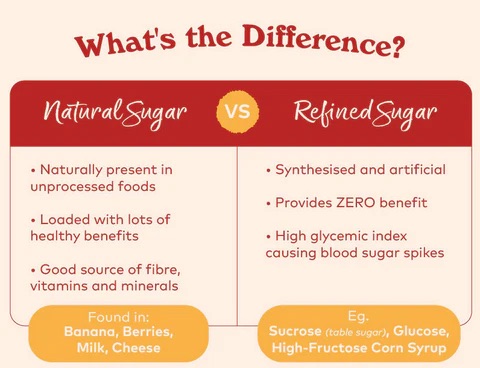As a young athlete, I couldn’t have cared less about my metabolic health. I was always active, ripped, and had seemingly endless energy. Nutrition? Who needed to worry about that when I could run on adrenaline and fast food? Yet, life has a funny way of waking us up. By my late teens, I started facing some health challenges, not because I struggled with my weight, but because I began to realize the garbage I was putting into my body was more than just calories—it was poison. Fast forward over a decade of clean eating, holistic lifestyle education, and a total revamp of my diet. I’m now staring down the most critical aspect of long-term athletic performance and health: metabolic health.
Younger athletes often dismiss metabolic health because we associate it with weight management or those with health problems like diabetes. But here’s the thing: even if you’re lean and performing at your peak, your metabolic health is still the foundation of everything from energy production to recovery. And if you’re not paying attention now, it will come back to bite you later. Trust me.
Why Metabolic Health Matters for Athletes—Even the Lean Ones
It’s easy to assume that as long as you’re not overweight, you’re metabolically healthy. But that couldn’t be further from the truth. Metabolic health is about how efficiently your body manages energy—specifically how it processes glucose and regulates insulin. It’s not about how much you weigh or how you look in the mirror. The most shredded athlete can still have underlying insulin resistance that will undermine their performance and longevity.
When I began digging into nutrition and our food supply, I wasn’t just looking for answers to stay lean—I wanted to understand how processed foods were slowly wrecking my body from the inside out. The more I studied, the clearer it became: metabolic health is the linchpin that holds everything together.
If you’re a high-performing athlete, the last thing you probably worry about is your insulin sensitivity. Yet, mastering this is a long-term game-changer. Insulin sensitivity determines how efficiently your body uses carbohydrates for energy and how well you recover from intense training. Unfortunately, in our modern food environment, even the fittest athletes are at risk of developing insulin resistance if they’re not careful about what they put into their bodies.
Desensitization: The Insulin Sensitivity and Volume Analogy
Picture this: you’ve got your headphones cranked up to 80% volume, and after a while, the music just doesn’t seem as loud anymore. Your ears have adjusted. That same idea applies to how your body reacts to excess sugar and carbohydrates.
Normally, when you eat carbs, your pancreas releases insulin to shuttle glucose into your cells for energy. But when you constantly bombard your body with high amounts of sugar—especially refined and artificial sugars—your system becomes overwhelmed. Just like your ears adjust to loud music, your cells become less responsive to insulin, leading to insulin resistance. This is like turning up the music to 90% just to hear it the same way, but with your body, it’s a vicious cycle of needing more insulin to manage the same amount of sugar.
This desensitization leads to some serious long-term consequences: weight gain, inflammation, and eventually type 2 diabetes. The irony? In diabetics, insulin therapy (the standard treatment) is associated with a higher incidence of cardiovascular disease and weight gain—two things we’re supposed to be preventing!
So, what should doctors focus on instead of prescribing insulin? Improving insulin sensitivity.
The Fix: Train Your Body to Use Insulin Effectively
Here’s the key: you don’t fix metabolic dysfunction by flooding the body with more insulin; you fix it by making the body more efficient at using insulin. That starts with addressing the root causes of insulin resistance: poor diet, lack of muscle mass, and sedentary lifestyles.
Think of insulin sensitivity like a finely tuned machine. You want to maintain it so your body can efficiently process glucose without overloading your system. Instead of relying on external insulin to do the job, train your body to handle glucose effectively by focusing on metabolic health fundamentals.
Not All Sugar is Created Equal: Natural vs. Artificial Sugars
If you take away anything from this, it’s that not all sugars are created equal. For years, we’ve been told that sugar is sugar, and it all affects our bodies in the same way. But that’s a load of garbage. The sugar in a processed candy bar isn’t the same as the sugar in a piece of fruit.
Artificial and Refined Sugars: These are the sugars found in sodas, candy, baked goods, and packaged snacks. They are processed, stripped of nutrients, and absorbed rapidly, causing a massive spike in blood sugar. This leads to a huge insulin response, setting the stage for insulin resistance over time.
Natural Sugars in Fruits: Fruits come with fiber, vitamins, minerals, and antioxidants, which slow down digestion and prevent those rapid blood sugar spikes. Instead of bombarding your system, the sugars in fruit are released slowly, giving your body time to process them efficiently. Plus, the nutrients in fruit support your metabolic processes, helping improve insulin sensitivity.
Choosing natural, whole foods over refined sugars is the first step to protecting your metabolic health. Want something sweet? Grab an apple instead of a candy bar. It’s not just about avoiding a sugar crash—it’s about ensuring your body isn’t overwhelmed by insulin spikes that lead to long-term damage.
Muscle: The Secret Weapon for Glucose Regulation
Now, let’s talk about the real secret to maintaining metabolic health: muscle mass. If there’s one thing every athlete should prioritize beyond skill and endurance, it’s building and maintaining muscle.
Muscle tissue is where most of the glucose in your body is stored and used for energy. The more muscle you have, the more glucose you can take up and use efficiently. This is why athletes with higher muscle mass tend to have better insulin sensitivity and glucose regulation. Strength training, in particular, has been shown to increase insulin sensitivity significantly.
If you’re not actively working to build or maintain muscle, you’re leaving your metabolic health on the table. You might be lean, but without muscle mass, your body’s ability to regulate glucose and use insulin effectively is compromised. And yet, mainstream advice focuses more on cardio and low-fat diets than on building muscle—an oversight that’s contributing to the rising rates of type 2 diabetes and metabolic dysfunction.
Insulin Sensitivity: The Key to Longevity, Health, and Performance
You might be thinking, “I don’t have diabetes, so why should I care about insulin sensitivity?” Fair question, but here’s the answer: insulin sensitivity affects every aspect of your health and performance, whether or not you have diabetes.
It’s linked to everything from fat burning and energy levels to preventing chronic diseases like obesity, heart disease, and even Alzheimer’s. Yes, Alzheimer’s is often referred to as “type 3 diabetes” because of its connection to insulin resistance.
For athletes, insulin sensitivity is critical not only for performance but also for recovery. When your body can efficiently process glucose, you’ll have more sustained energy throughout your training and quicker recovery times afterward. Poor insulin sensitivity, on the other hand, leads to energy crashes, increased inflammation, and a slower recovery process.
The Modern Lifestyle Wrecking Your Insulin Sensitivity
The sad reality is that our modern lifestyle is a breeding ground for insulin resistance. Let’s break down the key culprits:
Processed Foods and Refined Carbohydrates: Our diets are loaded with highly processed foods that spike blood sugar and flood our bodies with insulin. Over time, this leads to insulin resistance and metabolic dysfunction.
Sedentary Lifestyles: We sit more than ever before, whether at work, watching TV, or during commutes. This still applies to athletes, who will often couch-binge in between training sessions. When you’re not moving, your muscles aren’t using glucose, causing insulin levels to stay elevated, leading to insulin resistance.
Poor Sleep and Blue Light Exposure: Bad sleep wreaks havoc on your insulin sensitivity. Even one night of poor sleep can reduce insulin sensitivity by up to 30%! Add in blue light from screens, which disrupts your circadian rhythm, and you have a recipe for metabolic disaster. Check out my article on Impact of Artificial Light on Global Obesity and Wellness for more on this.
Chronic Stress and Cortisol: Stress causes cortisol levels to spike, raising blood sugar and increasing insulin resistance over time. Chronic stress can lead to weight gain, elevated blood sugar, and metabolic dysfunction.
Practical Tools to Improve Insulin Sensitivity and Metabolic Health
If you’re looking to improve your insulin sensitivity and safeguard your metabolic health, here are some practical tools to get you started:
Build Muscle with Resistance Training: Incorporate strength training into your routine. Aim for at least 3-4 sessions per week, focusing on compound movements like squats, deadlifts, and presses to build muscle mass and improve glucose regulation.
Prioritize Whole, Unprocessed Foods: Ditch the processed junk and focus on whole foods—lean protein, healthy fats, and natural carbohydrates like fruits and vegetables. These foods support stable blood sugar and better insulin sensitivity.
Incorporate Fasting: Intermittent fasting has been shown to improve insulin sensitivity by giving your body a break from constant food intake. Start with a simple 16/8 fasting window to help reset your metabolic health.
Cold Exposure: Ice baths or cold showers can help increase insulin sensitivity by activating brown fat, which burns glucose for energy.
Blue Light Blocking Glasses: Protect your sleep and circadian rhythm by wearing blue light-blocking glasses in the evening to prevent sleep disruptions and maintain insulin sensitivity.
Take a Post-Meal Walk: A simple 10-15 minute walk after meals helps lower blood sugar levels and improve insulin sensitivity.
Use a Continuous Glucose Monitor (CGM): If you want real-time feedback on how your body handles glucose, try using a CGM. It provides valuable data on your glucose response to different foods and activities, helping you optimize your metabolic health.
The Bottom Line: A Metabolic Crisis in the Making
Mainstream medicine has failed us by focusing on managing symptoms rather than addressing the root causes of metabolic dysfunction. The real solution to our metabolic crisis isn’t more medication or insulin—it’s about building muscle, improving insulin sensitivity, and making lifestyle changes that support long-term health and performance.
Whether you’re an athlete or just looking to live a long, healthy life, mastering your metabolic health should be a top priority. It’s not just about looking good on the outside—it’s about creating a foundation of health and resilience that will keep you performing at your best for years to come.








